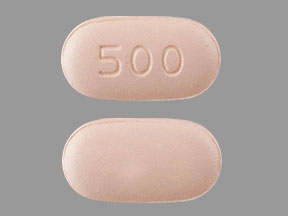Capecitabine Interactions
There are 295 drugs known to interact with capecitabine, along with 7 disease interactions, and 1 alcohol/food interaction. Of the total drug interactions, 62 are major, 208 are moderate, and 25 are minor.
- View all 295 medications that may interact with capecitabine
- View capecitabine alcohol/food interactions (1)
- View capecitabine disease interactions (7)
Most frequently checked interactions
View interaction reports for capecitabine and the medicines listed below.
- Abraxane (paclitaxel protein-bound)
- Advil (ibuprofen)
- Aleve (naproxen)
- Ambien (zolpidem)
- Ativan (lorazepam)
- Benadryl (diphenhydramine)
- Calcium 600 D (calcium / vitamin d)
- Claritin (loratadine)
- Co-trimoxazole (sulfamethoxazole / trimethoprim)
- CoQ10 (ubiquinone)
- Creon (pancrelipase)
- Eliquis (apixaban)
- Herceptin (trastuzumab)
- Ibrance (palbociclib)
- Iron Sulfate (ferrous sulfate)
- Metoprolol Succinate ER (metoprolol)
- Metoprolol Tartrate (metoprolol)
- MiraLAX (polyethylene glycol 3350)
- Morphine Sulfate ER (morphine)
- Paracetamol (acetaminophen)
- Quercetin (bioflavonoids)
- Synthroid (levothyroxine)
- Tylenol (acetaminophen)
- Vitamin B12 (cyanocobalamin)
- Vitamin B6 (pyridoxine)
- Vitamin C (ascorbic acid)
- Vitamin D3 (cholecalciferol)
- Xgeva (denosumab)
- Zofran (ondansetron)
- Zometa (zoledronic acid)
Capecitabine alcohol/food interactions
There is 1 alcohol/food interaction with capecitabine.
Capecitabine disease interactions
There are 7 disease interactions with capecitabine which include:
- infections
- coronary artery disease
- myelosuppression
- renal dysfunction
- dehydration
- hepatic dysfunction
- dihydropyrimidine dehydrogenase (DPD) deficiency
More about capecitabine
- capecitabine consumer information
- Compare alternatives
- Pricing & coupons
- Reviews (66)
- Drug images
- Latest FDA alerts (1)
- Side effects
- Dosage information
- During pregnancy
- Drug class: antimetabolites
- Breastfeeding
- En español
Related treatment guides
Drug Interaction Classification
| Highly clinically significant. Avoid combinations; the risk of the interaction outweighs the benefit. | |
| Moderately clinically significant. Usually avoid combinations; use it only under special circumstances. | |
| Minimally clinically significant. Minimize risk; assess risk and consider an alternative drug, take steps to circumvent the interaction risk and/or institute a monitoring plan. | |
| No interaction information available. |
See also:
Further information
Always consult your healthcare provider to ensure the information displayed on this page applies to your personal circumstances.


